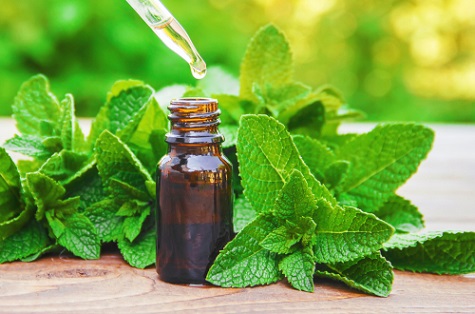They say an apple a day keeps the doctor away. But sometimes an apple just won’t cut it when you’re in bed with the flu, have a hangover, or your allergies are flaring up. That doesn’t mean you need to rush to the doctor, though. Here are some of the best natural ways to cure common ailments at home, from home remedies for a sore throat, to natural remedies for hay fever…
Cruelty Free Beauty
- 4 signs you have low iron levels
- Zero Waste Beauty: Adopt a green routine with these sustainable products
- This eco-friendly beauty box is packed with refillable multi-taskers
- “I find myself using it even when I don’t need to!”
- Arctic-inspired natural skincare brand launches in the UK
- Green People launches beauty balm packaged in 100% biodegradable pot
- Lush launches same-day delivery service for its iconic handmade cosmetics
- “This cruelty-free tanning water gave me the confidence boost I needed”
- rho launches sustainable loungewear that gives back
- Rose & Caramel Raises Awareness For Women’s Self-Esteem & Mental Health With ‘I TAN FOR ME’ Campaign
- Couple launches entirely plant-based and refillable deodorant on Kickstarter
- View all
Eco Living
- Simple Hacks to Cut Your Food Waste with Gino D’Acampo
- Five Easy Ways to Reduce Food Waste
- Eat these foods to boost your mood
- Upgrade Your Cheese Toastie
- Have a healthy Christmas with these festive food swaps
- Omega-3 Health Benefits
- 5 minutes with Max La Manna
- A nutritionist’s guide to eating for healthy joints
- Easy ways to achieve your health goals
- Discover the benefits of raisins on a vegetarian diet
- Improve your gut health with California Raisins
- View all
Vegan Recipes
- Quorn Vegan Hot & Spicy Burger with Pink Slaw
- Tomato and Pumpkin Soup
- Pea and elderflower cocktail
- Matcha Coconut Ice Cream
- Vegan Lemon Bars
- Mango Salad with Thai Dressing
- Garden Gimlet
- Tofu & Green Beans Teriyaki
- Cornflakes Bombay
- Rainbow Pickle
- Soba noodles with kale and collards
- View all
Popular recipes
- Spinach and ricotta quiche vegetarian recipe
- Cheats mushroom and spinach lasagne vegetarian recipe
- Lentil bolognese vegetarian recipe
- Creamy mushroom stroganoff vegetarian recipe
- Malaysian Rendang curry vegetarian recipe
- Feta, Butternut Squash, Caramelised Onion and Cashew Nut Wellingtons
News
- Pukka launches vegan pies to enjoy at home
- Adidas announces plans to eliminate plastic for good
- Couple launches entirely plant-based and refillable deodorant on Kickstarter
- ‘Pulled Oats’ latest plant-based protein to hit the market
- Plastic Petition pushes for greater transparency in UK recycling system
- New sustainable fashion brand launches vegan bags in the UK
- Wagamama’s new food concept is all about sustainability
- A catering company is now delivering vegetarian and vegan ingredients to your doorstep
- The Riverford Field Kitchen launches four-course veggie brunch
- Oddbox is delivering its fruit and veg boxes again
- Aldi Has Launched Its First Vegan Skincare Range
- View all
7 natural remedies to heal yourself at home
Down with a cold? Suffering from indigestion? Here's how to treat common ailments the natural way

Natural cold and flu remedies
Even if you do your best to keep the bugs at bay, the flu is a viral infection that can still break through that barrier. Despite the constant hand-washing and surge in vitamin C intake, you may find yourself with a tickle in your throat, the sniffles, or congestion. The common cold is harmless and, well, common, but that’s no comfort when you’re feeling groggy. Keep in mind that the cold and flu are quite different; even though you may have overlapping symptoms, the flu is much more debilitating, and can lead to fatigue, fever, respiratory congestion and even vomiting and diarrhoea. Depending on the severity of your symptoms, you may want to visit your GP to ensure the flu doesn’t lead to more serious issues such as pneumonia. However, the common cold is quite easily treated at home.

“There are plenty of remedies that can help alleviate common cold symptoms, besides getting a lot of rest and keeping yourself hydrated,” medical scientist Dr Nauf AlBendar (thewombeffect.co), says. “Zinc supplementation has become a popular treatment. Research has found that zinc may reduce the duration of a cold, perhaps by as much as 50%. Zinc also helps to control infections and prevent out-of-control inflammation. Echinacea extracts also seem to have an effect on the immune system by increasing the number of white blood cells that fight infections.
“Teas and syrups made from the elderberry plant have been commonly used to boost immunity for hundreds of years. Eucalyptus essential oil is known for its powerful ability to simulate immunity, in home remedies for coughs, to provide antioxidant protection, and unclog respiratory congestion. Add a few drops into steaming hot water or a diffuser to help clear nasal passages. It’s worth noting that essential oils are powerful, so safety is paramount. Their use should be avoided on babies younger than six months old, in pregnant or breastfeeding mothers, asthmatic individuals, or people using other medications.”
Whether you have a tickle in your throat or the fully-fledged flu, never underestimate the powers of water and rest. Stay well-hydrated, get plenty of sleep to allow your body to recuperate, and stay warm.
Sore throat remedies
Mira Manek (miramanek.com), author of PRAJÑĀ Ayurvedic Rituals for Happiness, turns to salt when a sore throat hits: “Gargle half a glass of warm water with a teaspoon of salt. You can do this throughout the day, but certainly start the morning with this to ease the soreness in your throat. Another option is to boil a teaspoon of ajwain (carom) seeds in a few cups of water. Strain, then add half a teaspoon of salt, and gargle this twice a day.”
How to heal indigestion
Peppermint, ginger, parsley, chamomile, and lemon balm teas have all been shown to support and calm digestive health. If you suffer from indigestion, these herbal remedies could all help to alleviate symptoms.
Mira’s go-to is a ginger concoction that she recommends for its warming, anti-inflammatory effects; it’s also great for metabolism. While you can use grated ginger, ground ginger tends to be more concentrated. Try making this drink and sipping on it throughout the day: stir ½-1 teaspoon of ground ginger, a pinch of sea salt or Himalayan salt, and a few drops of coconut oil into a mug of hot water.
Getting rid of a hangover
We’d love to tell you that there’s a magic cure for a hangover… but we’d be lying. The best way to counteract the effects of this is simply to allow your body time to recover. Ensure you get plenty of sleep, and drink lots of fluids (we mean water!) to rehydrate. You could also try ginger root tea to fight off any nausea.

Easing a headache
If regularly suffer from headaches, it can be tricky to put your finger on what’s triggering them. Common causes include dehydration, stress, eye strain, and even bad posture. Dr Nauf notes that research has also linked chronic headaches and migraines to vitamin deficiencies; specifically vitamin D, riboflavin, CoQ10, and magnesium. So, consider visiting your GP to check for any deficiencies, then increase your intake of vitamins through diet and supplementation if needed.
When a headache does hit, Dr Nauf suggests using a cold or hot compress either on your forehead, your neck, or the back of your head, to relieve symptoms. Peppermint essential oil is also an effective natural painkiller and muscle relaxant, and is especially helpful in alleviating tension headaches. Simply apply the oil topically to the area of concern. Combining it with lavender oil also helps your body relax, and reduces pain.
Allergy relief
If you suffer from environmental allergies such as hay fever, it can make you feel miserable as you battle symptoms like sneezing, itchy eyes, and sinus congestion. But research suggests that some natural remedies may help relieve symptoms if you use them as a preventative measure.
“Bromelain, an enzyme found in pineapples, can help reduce swelling in the nose and sinuses, which may relieve hay fever symptoms,” Dr Nauf says. “You can also try supplementing and eating foods rich in quercetin, such as raw onions, apples, red grapes, kale, spinach, cherries, bee pollen, green tea, and chilli peppers. Surprisingly, stinging nettle contains antihistamine and anti-inflammatory properties that help block the body’s production of symptom-causing histamine.” You can find stinging nettle in several forms – including root, leaf, and powdered – but tea and all-natural supplements are potentially the easiest ways to reap the benefits of this helpful herb. You can make your own brew by soaking fresh nettle leaves, or buy pre-packaged tea from health food stores.
You can also try irrigating your nose frequently to remove allergens, showering before bed to remove pollen and dust that’s built up throughout the day, hoovering your home regularly, and limiting your exposure to allergens; particularly on windy days.
More from Vegetarian blog


The sustainable men’s fashion brand from the Netherlands has launched in the UK

How to achieve an all-over, flawless tan at home
ADVERTISEMENT FEATURE

We’re always told that bacteria is bad for our skin, right? Wrong! We examine the complexion-boosting world of pre- and probiotics...

Discover the benefits of buying organic and discover organic-certified best buys
ADVERTISEMENT FEATURE




